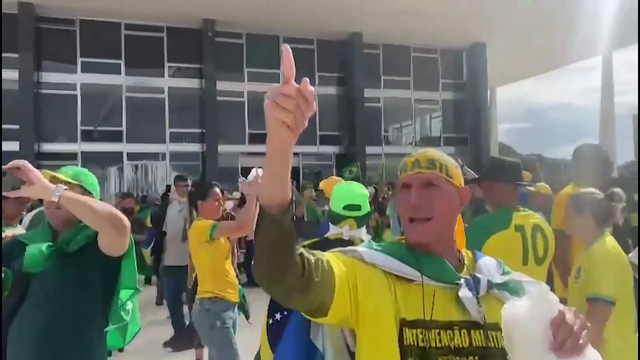The arrests of demonstrators who protested on Jan. 8 in Brasilia were made in an unusual way and with numerous procedural cases of abuse.
According to the criminalist jurist Eduardo Cabette, this may indicate that the protesters are victims of political arrests.
“Those who did not commit [vandalism] for sure,” the jurist explains in an interview with BSM, confirming the political arrest of the protesters.
“Those who committed, considering the unequal and draconian treatment with regard to criminal typifications, illegal attribution of Terrorism and abuse in the use of preventive detention as a “prima ratio” precautionary measure, it would also be possible to say, given this unusual and abusive treatment,” he explained.

The imputation of terrorism, repeated in newspapers and even in inquiries from the Supreme Court (STF), according to Cabette, indicates a false accusation and crime committed against these demonstrators, even those who took their protests as acts of vandalism.
As explained recently to BSM, the law of terrorism in Brazil does not have the typification of political nature.
“The Brazilian Terrorism Law (Law 13.260/16) does not foresee, does not typify the conduct of ‘Political Terrorism’, but only on account of ‘xenophobia, discrimination or prejudice of race, color, ethnicity, and religion’.”
“More than that, the Brazilian legislation makes it clear that acts of protest carried out for political motivation or claims cannot be equated to terrorism,” explains the lawyer in the article.
For this reason, last week, the Attorney General’s Office (PGR) rejected the charge of terrorism directed at the protesters.
The accused should answer for the crimes of
- armed criminal association (art. 288, sole paragraph of the Penal Code);
- violent abolition of the Democratic State of Law (art. 359-L of the CP);
- coup d’état (art. 359-M of the CP);
- damage qualified by violence and grave threat with the use of combustible substance against the patrimony of the Union and with considerable damage to the victim (art. 163, sole paragraph, I, II, III, and IV of the CP);
- deterioration of heritage listed (art. 62, I, of Law 9.605/1998).
These crimes will be combined with articles 29, caput (competition of persons) and 69, caput (material competition), both of the Penal Code, which can aggravate the penalties,” says an excerpt from the PGR statement.
With information from BSM

